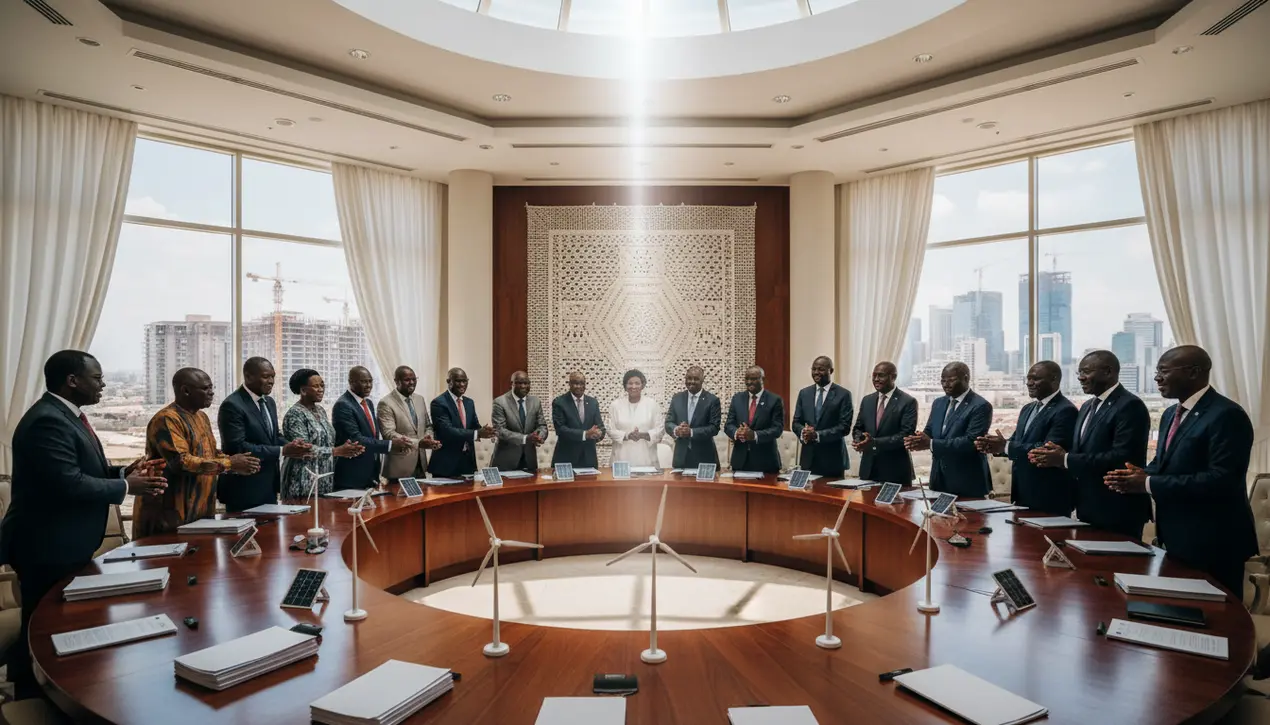
PoliticsdiplomacyTrade Agreements
EU and African Leaders Pledge Clean Energy and Infrastructure Investments.
RO
Robert Hayes
4 hours ago7 min read5 comments
In a significant diplomatic maneuver echoing the geopolitical realignments of a prior century, European and African leaders convened in Luanda for the EU-African Union summit, forging a pact centered on accelerating trade in renewable energy and the critical raw materials essential for the green transition. This Luanda pledge, emerging shortly after European leaders huddled in Johannesburg for the G20 where the bloc secured a separate trade agreement with South Africa, represents more than a mere communiqué; it is a strategic gambit in the new great game for economic influence and energy security.The summit's location in Angola, a nation rich in mineral wealth yet grappling with its own developmental challenges, served as a potent backdrop for discussions that sought to reframe a historically fraught relationship. One can draw a parallel to the post-World War II Marshall Plan, though this initiative is framed as a partnership of equals, aiming to leverage Africa’s vast solar and wind potential alongside its reserves of cobalt, lithium, and rare earth elements to power European industries while theoretically spurring infrastructure development across the continent.However, seasoned analysts are watching with a critical eye, noting the shadow of past unfulfilled promises and the intense competition from other global powers, notably China, which has deeply entrenched its economic and political interests through its Belt and Road Initiative over the past decade. The G20 side-deal with South Africa, a continental economic powerhouse, acts as a crucial linchpin, suggesting a European strategy of securing bilateral footholds to bolster a broader continental framework.The real test, as with any grand geopolitical vision, will lie in its implementation: navigating complex governance issues, ensuring benefits are equitably shared to prevent the 'resource curse,' and building the physical and regulatory infrastructure to support such an ambitious energy and trade corridor. The coming months will reveal whether this pledge becomes a Churchillian moment of transcontinental cooperation or merely another footnote in the long history of well-intentioned but ultimately insufficient international accords.
#featured
#EU-Africa Summit
#renewable energy
#trade deal
#critical raw materials
#infrastructure investment
#G20
#Angola
Stay Informed. Act Smarter.
Get weekly highlights, major headlines, and expert insights — then put your knowledge to work in our live prediction markets.
Related News
Comments
Loading comments...
© 2025 Outpoll Service LTD. All rights reserved.